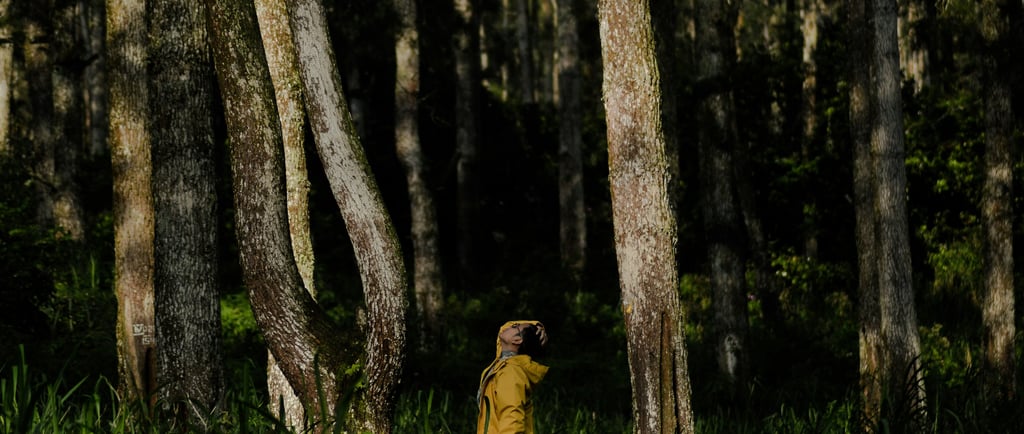It’s Okay to Not Have It All Figured Out.
A thoughtful reflection on why not having it all figured out is a normal—and necessary—part of growing into yourself.
PERSONAL DEVELOPMENT & SELF GROWTH
4/5/20255 min read


The Quiet Panic
It often creeps in when things get quiet.
You’re lying in bed, phone just put away, mind still racing.
A single question starts looping in your head:
Am I behind?
You think of the friend who just landed their dream job.
The couple who just moved in together.
The classmate who somehow always knew what they wanted—and is already doing it.
You scroll past photos and announcements and curated smiles, and the panic grows quieter but heavier:
What am I doing with my life?
This is the kind of pressure that rarely gets named, but almost everyone feels.
Especially in your twenties and early thirties.
There’s a strange expectation that by now, you should’ve figured it out.
A career. A purpose. A five-year plan. A sense of certainty.
But what if you haven’t?
What if you still feel like you’re circling the map with no clear destination?
Here’s the truth no one tells you loudly enough:
You’re not broken.
You’re becoming.
The Myth of the Master Plan
There’s a script most of us are handed early on.
It goes something like this:
Pick a path.
Stick to it.
Succeed quickly.
Stay stable.
Feel certain.
It’s neat and tidy on paper.
In real life, it almost never unfolds that way.
Yet when it doesn’t, we assume the problem is us.
We question our worth, our direction, our capacity.
Social media doesn’t help.
It turns everyone else’s progress into a silent benchmark.
You’re not just figuring out your life—you’re doing it while being watched.
While everyone seems to have headlines:
“New job!” “Big move!” “Just launched this!”
You’re in the quiet middle—exploring, changing your mind, figuring things out.
But what if that quiet middle is exactly where growth happens?
What Psychology Tells Us About Uncertainty
We tend to treat uncertainty like a problem.
As if not knowing means something is wrong.
As if clarity should arrive early and stay steady.
But psychological development tells a different story.
In your twenties and early thirties, your sense of self is still under construction.
Erik Erikson called this phase a time of identity exploration—where you’re not just figuring out what you want, but who you are.
You’re choosing values, separating from expectations, and building an inner compass.
It’s messy by design.
Even neurologically, the parts of the brain responsible for decision-making and long-term planning—the prefrontal cortex—are still maturing.
Which means second-guessing, changing direction, and questioning everything?
They’re not signs of immaturity.
They’re signs you’re in the thick of growth.
The pressure to “arrive” early ignores all of this.
It skips over the natural confusion that comes with becoming an adult who’s living by choice, not just momentum.
Uncertainty isn’t the enemy.
It’s often a sign that you’re asking the right questions.
Everyone’s Path is Foggy—We Just Don’t Talk About It
It’s tempting to believe other people have a clearer path.
That somewhere out there, someone your age is living with certainty, confidence, and a color-coded life plan.
But the truth is quieter than that.
Most people are navigating in fog.
They see just far enough to take the next step.
Then they adjust. Then step again.
But we rarely talk about that part.
We show the milestones, not the missteps.
The promotions, not the panic attacks.
The relationships, not the lonely nights of wondering whether you’re lovable or lost.
So when you feel unsure, it’s easy to assume you’re the only one.
That everyone else got a map and you missed the handout.
But if you were to listen closely—beneath the posts and the polished answers—you’d hear a different story:
“I’m figuring it out too.”
“I thought I knew, but I’ve changed.”
“I’m still not sure, but I’m trying.”
The fog doesn’t mean you’re off-course.
It means you’re human.
Shifting from Pressure to Permission
There’s a quiet kind of pressure that builds when you believe you’re falling behind.
It makes you rush decisions.
Doubt every detour.
Ignore your own intuition just to keep up with someone else’s timeline.
But what if the goal wasn’t certainty?
What if it was curiosity?
Letting go of the need to “have it all figured out” doesn’t mean you’re drifting.
It means you’re giving yourself permission to explore.
To be honest. To try things. To change your mind.
Instead of asking, “What’s the right choice?”
Try asking, “What feels true for me right now?”
Instead of, “Where should I be by now?”
Try, “What’s the next small step I can take with integrity?”
Here are a few reflective questions to start with:
What do I value—when no one is watching?
What’s one thing I’ve outgrown but keep holding onto out of fear?
Where in my life am I choosing comfort over growth—or growth over kindness?
What might I discover if I gave myself more time?
You don’t need to know exactly where you’re going to live a meaningful life.
You just need to start walking with your eyes open.
Building a Life You Can Grow Into
There’s a lot of talk about “finding yourself” in your twenties.
As if who you are is buried somewhere, waiting to be discovered like a complete version of you sealed in stone.
But identity isn’t found. It’s formed.
Not all at once, but gradually—through choices, mistakes, relationships, endings, and new beginnings.
You become who you are by living.
By showing up when things are unclear.
By noticing what drains you and what lights you up.
By letting go of the roles you were handed, and choosing the ones that fit.
Instead of trying to build a perfect life, try building a life you can grow into.
One that makes space for your questions.
One that allows for reinvention.
One that values rest as much as ambition.
And if you’re unsure where to start, begin small:
Try something that scares you—just a little
Say no when you mean it
Choose one thing this week that aligns with who you want to become
Surround yourself with people who make space for your becoming.
Your life doesn’t need to look finished.
It needs to feel like yours.
You’re Not Behind. You’re Becoming.
Maybe you’ve had nights where the quiet feels heavy.
Where the questions outnumber the answers.
Where it feels like everyone else is living a clearer story, and yours is still being drafted in pencil.
If that’s you—pause.
Breathe.
You are not behind.
You are not late.
You are not the only one still figuring it out.
You are learning to listen to yourself.
You are discovering what matters.
You are building something that doesn’t need to look impressive to be meaningful.
Becoming doesn’t happen on a schedule.
It doesn’t follow neat milestones or predictable steps.
It’s a slow, shifting process that often doesn’t make sense until later.
You don’t owe the world a finished version of yourself.
You just owe yourself the chance to keep going—with honesty, with care, and with room to grow.
If this resonates, share it with someone who needs to hear it too.
Most of us are quietly carrying the same questions.
Address
Taunusanlage 8, 60329 Frankfurt am Main
Contacts
info@csergianni.com
+49(0)15236632744


© 2025 by Christina Sergianni, PhD - All Rights Reserved.


